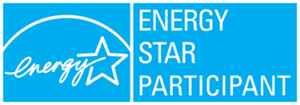As the first city in Canada, there are some old buildings in Montreal. And with old buildings comes old furnaces! Of course, we’re not saying that you might have a hundred year old furnace, but you might want to make sure you have the most efficient and effective furnace to fight off Montreal’s frigid winter.
Like many other regions across Quebec, electric baseboard heating thanks to the province’s cheap and plentiful hydroelectric power generation is more common than natural gas forced-air furnaces.
Nevertheless, many new buildings in Montreal as well as older buildings with overhauled heating systems, use gas heating. This guide provides important information to homeowners and small business owners looking to upgrade or replace their HVAC system with a new gas furnace.
Montreal, Québec by the Numbers
Population: 1.705 million
Average Temp. (Summer): 20 degrees Celsius
Average Temp. (Winter): -7.7 degrees Celsius
Top Canadian Brands by Price Tier
Low Tier $2,400 + KeepRite
Mid Tier – $3,000 + American Standard
Premium Tier – $3,400 + Lennox
Purchasing a high-efficiency furnace
Size vs Efficiency
When buying a new high-efficiency furnace, you’ll see lots of manufacturers advertising numbers that represent the AFUE rating and the BTU ratings of various models. If you’re wondering what the numbers mean and what their relationship is with each other, then keep reading for our explanation.
AFUE Rating
The AFUE rating is the percentage that shows how efficient your furnace is at turning heating fuel like natural gas or propane into useable heat. A high-efficiency furnace will be rated at 90% or higher, and this number corresponds with how many cents in each dollar will go towards heating your home.
The higher the rating, the better, and it’s not uncommon to see models boasting ratings as high as (almost) 99%. The AFUE rating depends on the technology included in the unit such as whether the furnace is a single-stage, two-stage or a modulating unit and the quality and quantity (one or two) of the heat exchangers that heat the air entering your home.
BTU Rating
The BTU (British Thermal Unit) rating shows the heating power of your furnace. The actual measurement itself measures how much energy is required to raise the temperature of a pound of water by 1-degree Fahrenheit. A rule of thumb is that higher BTU ratings are suitable for larger homes while lower ones will often serve smaller homes adequately.
What to consider
If you opt for a BTU rating that’s too low, you’ll be faced with a furnace that struggles to heat your home as efficiently, especially on the coldest days of a Montreal winter. Since it uses more energy by continually working at its full power to try and match the temperature on the thermostat.
The flip side is a furnace with too high a BTU rating, which can end up heating certain areas faster than others and then get stuck in a loop of short cycling. Short cycling can result in more energy being used as the unit is turning on and off constantly, and can also negatively impact the furnace’s lifespan.
Getting a professional opinion
Getting the correct BTU size furnace for your home is crucial to making sure that your furnace runs as efficiently as possible. To do this, you should have a contractor survey your home or and provide a custom estimate.
Every home is unique. It’s great going for a furnace that has a 97% AFUE rating – but if your furnace is ill-suited to your home and not correctly-sized, your comfort and the system’s efficiency will suffer.
Choosing the right contractor for installation
Choosing an experienced technician with the correct certification is crucial to ensuring your furnace is installed correctly. A furnace is a large investment, and it requires an experienced professional.
You don’t want a hastily-done job. That’s why choosing the right company or contractor is important! Don’t automatically take the lowest price you can get.
Also, look out for a company or contractor that offers a guarantee with the installation of at least a year or two. Being covered by a guarantee allows you peace of mind that should something go wrong (it happens).
Current Furnace Deals, Offers & Promotions in Montreal
Government Rebates in Montreal
• Check out the Rénoclimat program in Montreal to help make your home more energy efficient.
• Energir offers rebates for low-income households, the purchase of a new programmable thermostat and they also offer a grant for a smart thermostat.
• There’s also financial assistance available for the owners of Novoclimat homes
Popular Furnace Brands in Montreal
The following brands are popular in Montreal and can be used as inspiration when searching for a new high-efficiency furnace.
Amana
American Standard
Bryant
Carrier
Comfortmaker
KeepRite
Lennox
Napoleon
Tempstar
Trane
Furnace Prices in Montreal
The exact price of a furnace in Montreal depends on factors such as the make and model chosen, and the contractor hired for installation. However, our estimate at the average price of a furnace in Montreal (including installation) is usually $3000 – $6000.
Note however that this price assumes your home already has ductwork to circulate the air throughout your home. Since many Montreal homes are configured for electric heating, converting to forced-air heating may require ductwork to be installed, which obviously can add to the cost considerably. This may require a general contractor to perform these renovations.
Financing Options in Montreal
If you want to upgrade to a high-efficiency furnace, but you’re worried about the up-front cost, an option may be to finance the unit. Financing is an excellent way of purchasing and benefitting from a new high-efficiency furnace while paying back the cost of the unit plus interest.
General City Information
Montreal is the second-most populous municipality in Canada and is home to over 1.7 million people, and close to 3.5 million in the metro area. The second largest French-speaking city in the world, behind only Paris, Montreal has received numerous past and present accolades such as being ranked the best city in the world to be a university student by the QS World University Rankings and being named the UNESCO city of design in 2006. Montreal is visited by tourists from all over the world thanks to its impressive centre of commerce, unique culture and numerous historical attractions. It’s also home to such events such as the Montreal International Jazz Festival, known as one of the largest Jazz festivals in the world, and sporting events such as the Canadian Grand Prix of Formula One.





